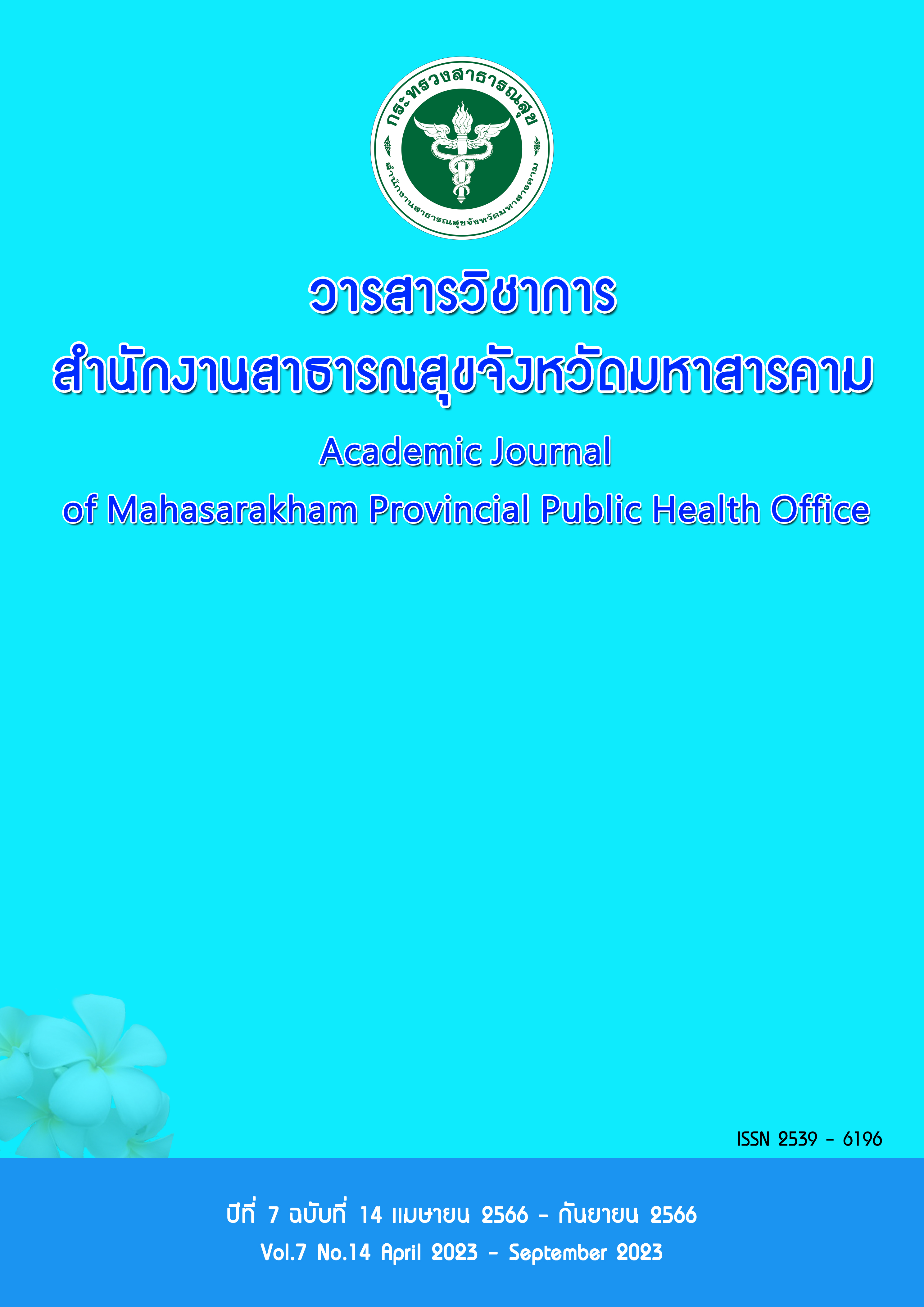Effect of Self-Efficacy Program in Caregiver's Pressure Ulcer for Elderly Patient with Hip Fracture at Maha Sarakham Hospital
Abstract
This research is a quasi-experimental study to examine the outcomes of using a program to enhance caregivers' self-efficacy in elderly patients with hip fractures to prevent pressure ulcers. The sample group was 124 caregivers of elderly people who had hip fractures while admitted to the female orthopedic surgery ward of Maha Sarakham Hospital. A purposive sample was selected according to the specified qualifications, randomly assigned to the experimental group 62 people and the control group 62 people, two measurement groups before and after the experiment (Pretest -Posttest Control Group Design).
The experimental group received a program to enhance the self-efficacy of caregivers of elderly patients with hip fractures to prevent pressure sores. The control group received normal nursing care. Data collection tools include a questionnaire to assess caregivers' ability to provide care to prevent pressure ulcers. Braden's Physical Risk Assessment for Pressure Sores and Bergstrom's pressure ulcer assessment form. Data were analyzed with frequency, percentage, mean, and Paired t-test statistics.
The results of the research found that the mean score of caregivers' ability to provide care to prevent pressure ulcers in skin care and cleanliness, mobility assistance, and taking care of food and water for the experimental group was better than before receiving the program and was significantly better than the control group (p<0.05). The experimental group had a high incidence of pressure ulcers in elderly patients with hip fractures less than in the control group.
Keywords : Self-Efficacy Program on Caregiver’s Pressure Ulcer Prevention for Elderly Patient with Hip Fracture at Mahasarakham Hospital, Hip Fracture in elderly, Pressure ulcer


